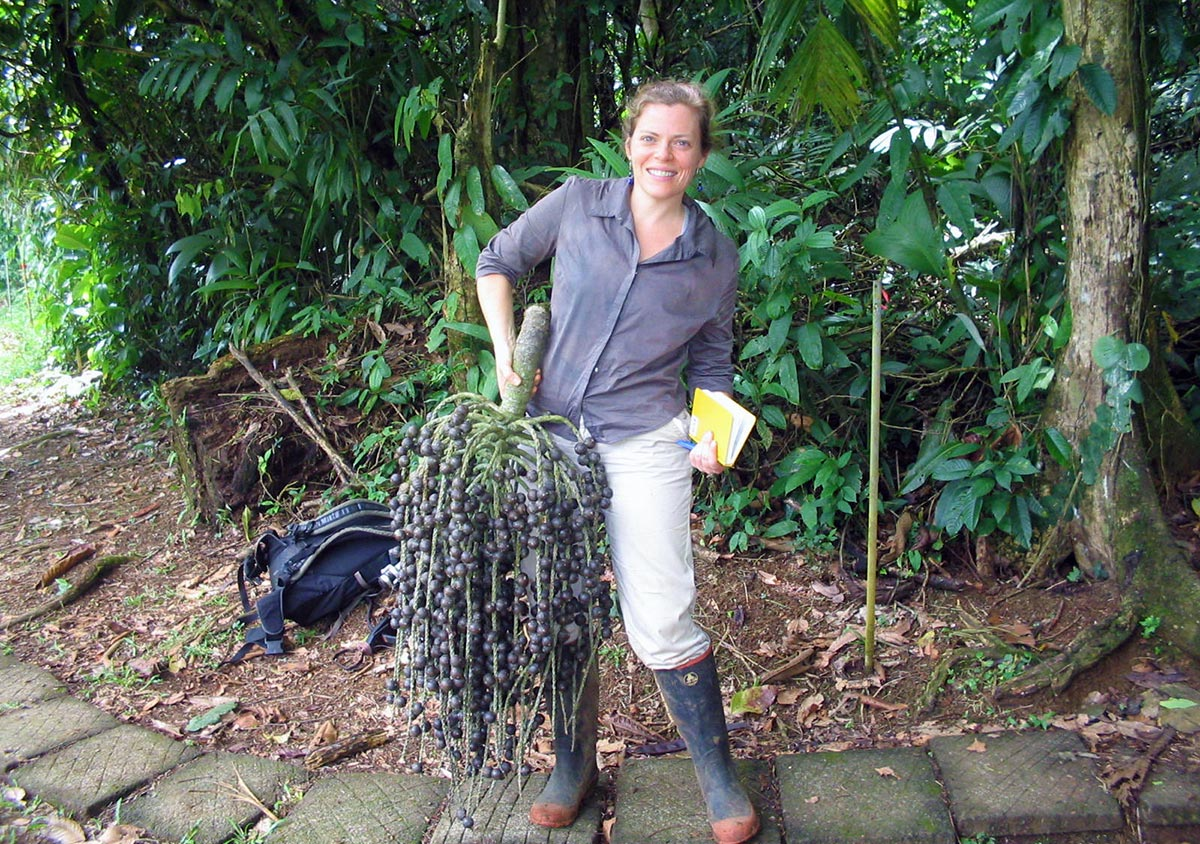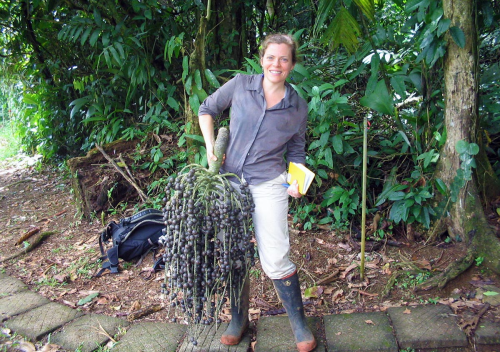Dr. Nora Bynum, a long-term staff member who made significant contributions to the development and implementation of OTS’ education program, retired in July 2024. Dr. Bynum was integral to the OTS education program in a variety of roles for almost 20 years.
Nora received her Ph.D. from Yale University in a joint degree program in Anthropology and Forestry & Environmental Studies in 1995. Nora conducted her Ph.D. research in Sulawesi, Indonesia, and as a founding member of the Sulawesi Primate Project, she focused her research on Asia. Following a teaching position at the University of the South, she was recruited to be the Academic Director for OTS. Her strong belief in experiential learning sparked her interest in the position. She served in that position from 1998 to 2002. When initially hired, she did not speak Spanish. In order to open doors for OTS training in Latin America, in what she refers to as “the smartest thing I did,” she quickly became proficient in Spanish.
For Dr. Bynum, working on course and program development became a consistent part of her work – and she developed a keen interest and expertise in the topic. Most recently, she served as OTS’ Dean of Academic Programs and played a pivotal role in the Environmental Sciences and Policy Program and its fundraising and development efforts.
Outside of her work with OTS, Nora has an impressive list of career accomplishments. She served as Chair of the Board for the Amazon Center for Environmental Education and Research (ACEER) for more than 20 years. She was Chair of the Education Committee for the Board of Governors of the Society of Conservation Biology. Nora played a key role as Vice Provost in the creation of Duke Kunshan University. She worked at the American Museum of Natural History as Project Director for the Network of Conservation Educators and Practitioners (NCEP), and as the Associate Director for Capacity Development in the Center for Biodiversity and Conservation. Prior to returning to OTS, Nora was the Director of the Science Action Center at the Field Museum, in Chicago, IL, where she oversaw rapid field assessments in Latin America and multiple conservation projects in Chicago and its environs.
Collaboration is critical for Dr. Bynum. She personally attributes her success to the active mentoring she received from senior OTS mentors such as Gary Hartshorn, Bette Loiselle, David and Deborah Clark, Orlando Vargas, Luis Diego Gomez, Deedra McClearn, Maureen “Mo” Donnelly, Elizabeth “Beth” Braker, Laurence Kruger, and others too numerous to name. She lives by the statement, “There is no limit to how much you can do, if you don’t care who gets the credit.”


